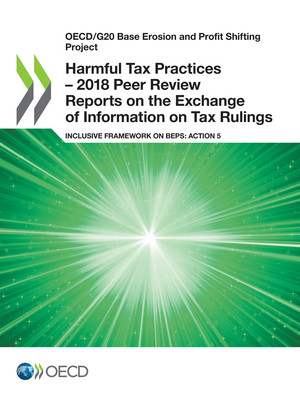copy the linklink copied!Sri Lanka
Sri Lanka did not provide a completed peer review questionnaire to the Secretariat. It is not known whether Sri Lanka has implemented the transparency framework in line with the terms of reference (OECD, 2017[3]). Sri Lanka receives two recommendations covering the information gathering process (ToR I.4) and exchange of information (ToR II.5) for the year in review.
In the prior year report, Sri Lanka received the same two recommendations. As they have not been addressed, the recommendations remain in place.
It is not known whether Sri Lanka can legally issue any types of ruling within the scope of the transparency framework, or whether in practice Sri Lanka issued any such rulings.
No peer input was received in respect of the exchanges of information on rulings received from Sri Lanka.
copy the linklink copied!Introduction
This peer review covers Sri Lanka’s implementation of the BEPS Action 5 transparency framework for the year 2018. The report has four parts, each relating to a key part of the ToR. Each part is discussed in turn. A summary of recommendations is included at the end of this report.
copy the linklink copied!A. The information gathering process
Sri Lanka was not yet able to complete the peer review questionnaire. It is not known whether Sri Lanka has implemented the transparency framework during the year in review.
Conclusion on section A
Sri Lanka is recommended to ensure that it has put in place an effective information gathering process to identify all relevant past and future rulings and all potential exchange jurisdictions and to implement a review and supervision mechanism, as soon as possible (ToR I.4).
copy the linklink copied!B. The exchange of information
Legal basis for spontaneous exchange of information (ToR II.5.1, II.5.2)
It is not known whether Sri Lanka has the necessary domestic legal basis to exchange information spontaneously. Sri Lanka is recommended to put in place a domestic legal framework allowing spontaneous exchange of information on rulings if needed (ToR II.5.1).
Sri Lanka has international agreements permitting spontaneous exchange of information, including being a party to the (i) Multilateral Convention on Mutual Administrative Assistance in Tax Matters: Amended by the 2010 Protocol (OECD/Council of Europe, 2011[4]) (“the Convention”), (ii) bilateral agreements in force with 44 jurisdictions.1
Completion and exchange of templates (ToR II.5.3, II.5.4, II.5.5, II.5.6, II.5.7)
It is not known whether Sri Lanka has put in place a process to exchange information on rulings in accordance with the form and timelines required by the transparency framework. Sri Lanka is recommended to ensure the timely exchange of information on rulings in the form required by the transparency framework.
Conclusion on section B
Sri Lanka is recommended to continue to put in place a domestic legal framework allowing spontaneous exchange of information on rulings and to continue its efforts to complete the templates for all relevant rulings and to ensure that the exchanges of information on rulings occur as soon as possible (ToR II.5).
copy the linklink copied!C. Statistics (ToR IV)
As the Secretariat is not aware whether information on rulings was exchanged by Sri Lanka for the year in review, no statistics can be reported here.
copy the linklink copied!D. Matters related to intellectual property regimes (ToR I.4.1.3)
Sri Lanka does not offer an intellectual property regime for which transparency requirements under the Action 5 Report (OECD, 2015[5]) were imposed.
Note
← 1. Parties to the Convention are available here: www.oecd.org/tax/exchange-of-tax-information/convention-on-mutual-administrative-assistance-in-tax-matters.htm. Sri Lanka also has bilateral agreements in force with Australia, Bangladesh, Bahrain, Belarus, Belgium, Canada, China (People’s Republic of), Czech Republic, Denmark, Finland, France, Germany, Hong Kong (China), India, Indonesia, Iran, Italy, Japan, Korea, Kuwait, Luxembourg, Malaysia, Mauritius, Nepal, Netherlands, Norway, Oman, Pakistan, Palestinian Authority, Philippines, Poland, Qatar, Romania, Russia, Saudi Arabia, Seychelles, Singapore, Sweden, Switzerland, Thailand, United Arab Emirates, United Kingdom, United States, and Viet Nam.
Metadata, Legal and Rights
https://doi.org/10.1787/7cc5b1a2-en
© OECD 2019
The use of this work, whether digital or print, is governed by the Terms and Conditions to be found at http://www.oecd.org/termsandconditions.


